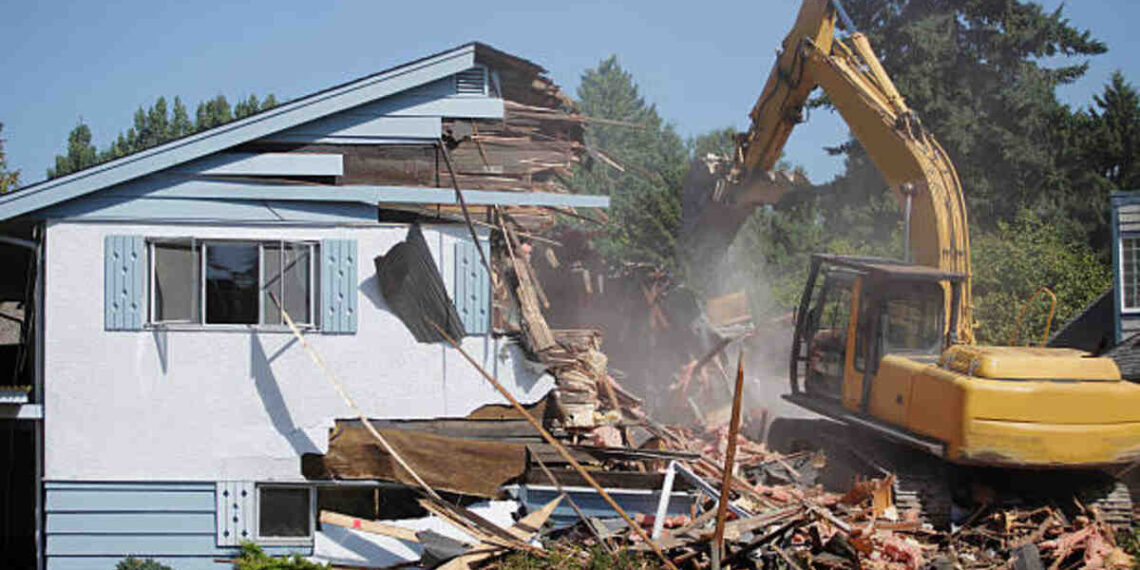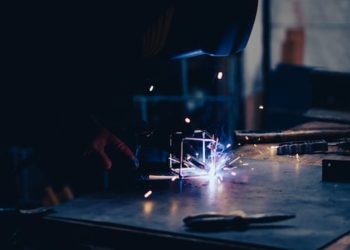Introduction
Demolition has come a long way from the days of rudimentary wrecking balls and uncontrolled explosions. Today, demolition companies in Pittsburgh offer a blend of innovative technology, stringent safety protocols, and eco-friendly practices to transform outdated or unsafe structures into cleared spaces ready for new development. In this bustling city—steeped in industrial heritage and modern reinvention—the evolution of demolition practices mirrors Pittsburgh’s own transformation from a steel town to a hub of innovation and sustainability. Look into the Best info about Demolition Pittsburgh PA.
The Evolution of Demolition Practices
Over the past few decades, demolition has evolved from a chaotic and hazardous process into a precise and calculated science. The transition began as traditional methods gave way to engineered solutions that emphasize controlled demolitions. These modern techniques utilize computer simulations, robotic machinery, and advanced materials to ensure that buildings are dismantled safely, efficiently, and with minimal environmental impact. By adopting cutting-edge technology, demolition companies in Pittsburgh have drastically reduced on-site accidents, improved waste management, and increased the overall speed and efficiency of their projects.
Historically, demolition was often seen as a necessary evil—a risky endeavor undertaken only when a building posed an imminent threat. Today, however, it has become a critical part of urban renewal, where professionals take pride in transforming blighted structures into opportunities for community revitalization. The integration of sustainable practices, such as recycling demolition waste and reusing materials, has further solidified the role of demolition experts in shaping environmentally responsible urban landscapes.
Why Professional Demolition is Essential
Hiring a professional demolition company isn’t just about tearing down structures; it’s about doing so responsibly. Certified experts understand the complexities involved in safely dismantling a building, from assessing structural weaknesses to managing hazardous materials like asbestos or lead paint. Their extensive training ensures that every project complies with local, state, and federal regulations—an essential aspect in a city like Pittsburgh, where historical architecture often coexists with modern structures.
Professionals employ risk management strategies that include comprehensive site assessments, detailed planning, and continuous monitoring throughout the demolition process. This attention to detail not only protects the workers but also safeguards the surrounding community and environment. Moreover, the use of advanced machinery and controlled demolition techniques minimizes dust, noise, and vibrations, contributing to a smoother transition during urban redevelopment projects.
By incorporating these advanced practices, demolition companies in Pittsburgh are setting industry benchmarks. Their commitment to safety, environmental sustainability, and efficiency underscores the importance of working with reputable professionals. As cities continue to grow and redevelop, the role of these companies becomes increasingly vital in ensuring that progress does not come at the expense of safety or environmental integrity.
Transitioning from these foundational insights, the following sections delve into a comprehensive analysis of the top demolition companies in Pittsburgh, their service offerings, and the innovative technologies that define modern demolition practices.
Overview of Top Demolition Companies in Pittsburgh
Pittsburgh’s demolition scene is defined by a select group of companies renowned for their expertise, cutting-edge technology, and steadfast commitment to safety. This section takes a closer look at these leading firms, their histories, and what sets them apart in an industry where precision and reliability are paramount.
Company Profiles and Industry Leadership
Among the top players, several companies have carved out reputations as industry leaders. These firms have years—if not decades—of experience handling complex projects, ranging from small-scale residential demolitions to large industrial clearances. Their proven track record is built on a foundation of skilled labor, modern equipment, and a deep understanding of the unique challenges that come with demolishing structures in an urban environment like Pittsburgh.
One standout company, for example, has become synonymous with excellence by consistently delivering projects on time and within budget. Their approach integrates innovative technologies such as 3D modeling and controlled implosion techniques that not only ensure structural safety but also reduce collateral damage to surrounding properties. The emphasis on technology-driven solutions demonstrates how these companies are setting new standards in efficiency and environmental responsibility.
Another noteworthy firm prioritizes sustainability by employing eco-friendly practices. They focus on maximizing material recycling, reducing landfill waste, and using demolition by-products as secondary raw materials for new construction projects. This environmentally conscious approach is increasingly significant in today’s market, where communities demand greener practices and sustainable urban development.
Service Offerings and Specializations
The service spectrum provided by these demolition companies is as diverse as Pittsburgh itself. Many firms offer comprehensive demolition services that cover pre-demolition site surveys, structural assessments, and meticulous planning, ensuring every project begins with a clear roadmap. Their expertise extends to handling hazardous materials safely, which is a critical requirement in older buildings where substances like asbestos might be present.
Specializations vary from company to company. Some focus exclusively on residential demolitions, where precision and minimal disruption are key, while others excel in commercial and industrial projects that demand more robust machinery and extensive logistical planning. In all cases, the common thread is a dedication to quality, safety, and customer satisfaction.
Additionally, these companies often provide post-demolition services, such as site clean-up, debris recycling, and even assistance with site preparation for future construction. This full-cycle service model offers clients a seamless experience—from the initial demolition to the final site handover. By understanding the intricacies of local zoning laws, environmental regulations, and safety standards, these firms deliver tailored solutions that meet the unique demands of Pittsburgh’s dynamic urban landscape.
The Competitive Edge
What truly differentiates the top demolition companies in Pittsburgh is their competitive edge in technology and project management. They leverage state-of-the-art equipment such as remote-controlled demolition robots, precision cutting tools, and computerized structural analysis software to optimize every phase of the demolition process. This technological prowess, combined with experienced project managers and skilled technicians, ensures that every demolition project adheres to the highest safety and quality standards.
Furthermore, client testimonials consistently highlight the exceptional professionalism and customer-centric approach of these companies. They are not only demolition experts but also trusted advisors who guide clients through the often-daunting process of deconstructing a structure. Whether it’s ensuring minimal disruption to neighboring businesses or navigating complex regulatory environments, these companies excel in delivering peace of mind along with physical results.
Advanced Demolition Techniques and Safety Protocols
The field of demolition has been transformed by technological innovations that not only expedite the process but also enhance safety and precision. In this section, we delve into the advanced demolition techniques used by leading companies in Pittsburgh and the robust safety protocols they enforce to protect workers, bystanders, and the environment.
Innovations in Demolition Technology
Modern demolition is characterized by an impressive array of technological advancements that have revolutionized the way structures are brought down. Gone are the days when demolition was synonymous with chaos and unpredictability. Today, companies rely on a combination of cutting-edge machinery and computer-assisted design to plan and execute demolitions with pinpoint accuracy.
One notable advancement is the use of 3D modeling and simulation software. Before any physical work begins, engineers create detailed virtual models of the target structure. These models help identify potential risks, structural weaknesses, and the optimal sequence for dismantling the building. This pre-demolition planning is crucial for ensuring that the actual demolition proceeds smoothly and safely.
Robotic demolition tools have also made a significant impact. Remote-controlled demolition robots are now commonly used, especially in high-risk or hard-to-reach areas. These machines are equipped with advanced sensors and cameras that allow operators to work from a safe distance while maintaining full control over the demolition process. Such innovations not only reduce the risk of accidents but also improve operational efficiency.
In addition to these technologies, controlled demolition techniques—often referred to as implosion—are a staple in the industry. By strategically placing explosives and timing the blasts with precision, demolition experts can cause a building to collapse in a controlled manner. This technique minimizes the impact on adjacent structures and reduces the amount of debris generated, making site clean-up more manageable.
Comprehensive Safety Measures
While technology plays a vital role in modern demolition, safety remains the paramount concern. Every demolition project is preceded by a rigorous safety assessment, which involves evaluating the site for potential hazards and planning mitigation strategies. This includes everything from securing the perimeter of the demolition site to ensuring that all workers are equipped with the proper protective gear.
Safety protocols are meticulously designed to comply with local, state, and federal regulations. Demolition companies conduct regular training sessions for their staff, ensuring that everyone is up to date with the latest safety procedures and emergency response plans. Continuous monitoring of the site during the demolition process further ensures that any potential risks are immediately addressed.
Moreover, the integration of technology in safety management has been a game changer. Real-time data collection from machinery and on-site sensors helps in monitoring environmental conditions such as dust levels, noise, and structural integrity. This data is then analyzed to make on-the-fly adjustments, ensuring that safety remains uncompromised throughout the project.
Another critical aspect is the safe handling and disposal of hazardous materials. Older buildings, in particular, may contain asbestos, lead, or other dangerous substances. Professional demolition companies are trained to identify and manage these materials safely, often working in tandem with environmental experts to ensure proper removal and disposal. This not only protects the health of workers and nearby residents but also preserves the surrounding ecosystem.
By incorporating both technological innovations and stringent safety protocols, demolition companies in Pittsburgh are setting new industry benchmarks. They demonstrate that with the right blend of technology, training, and regulatory compliance, even the most challenging demolition projects can be executed safely and efficiently.
Environmental Considerations, Cost Analysis, and Future Trends
Demolition projects today are not just about dismantling structures—they’re about doing so responsibly, sustainably, and cost-effectively. In this section, we explore the environmental considerations, cost analyses, and emerging trends shaping the future of demolition in Pittsburgh.
Environmental Considerations and Sustainability
Environmental responsibility is at the forefront of modern demolition practices. Many of Pittsburgh’s top demolition companies have embraced sustainability by incorporating eco-friendly methods into every project. One key practice is recycling demolition debris. Instead of sending waste to landfills, materials such as concrete, metals, and wood are sorted and repurposed. This not only conserves natural resources but also reduces the overall environmental footprint of demolition projects.
Furthermore, companies are investing in technologies that reduce dust, noise, and emissions during demolition. For instance, water suppression systems are often used to minimize airborne dust, while advanced machinery operates with lower emissions compared to older, less efficient equipment. These measures are particularly important in urban areas where air quality and community health are of paramount concern.
Local regulations also play a significant role in driving sustainable practices. Demolition companies in Pittsburgh must comply with strict environmental standards set by state and federal agencies. These guidelines ensure that hazardous materials are handled responsibly, and that debris is managed in an environmentally sound manner. The commitment to sustainability not only benefits the community but also enhances the companies’ reputations as responsible, forward-thinking businesses.
Cost Analysis and Budgeting
Cost is a critical factor for anyone considering a demolition project. Whether it’s for residential, commercial, or industrial purposes, budgeting plays a crucial role in the planning process. Demolition companies provide detailed estimates that factor in everything from labor and machinery to waste disposal and environmental remediation. These estimates help clients understand the financial implications of their projects and make informed decisions.
A transparent pricing strategy is one of the key value propositions offered by top demolition companies in Pittsburgh. They break down costs into clear, manageable components, ensuring that clients are aware of what they’re paying for at every stage of the process. In many cases, the long-term savings achieved through efficient demolition—such as reduced waste disposal fees and faster project completion times—outweigh the initial expenses.
For many clients, the ability to customize services according to their specific needs is another significant advantage. Some companies offer flexible payment plans and financing options to make large-scale demolitions more affordable. They also provide consultation services to help clients plan their projects in a way that optimizes cost without compromising on safety or quality.
Future Trends in Demolition
Looking ahead, the demolition industry in Pittsburgh is poised for further transformation. Innovations in automation, artificial intelligence, and data analytics are expected to drive even greater efficiencies in the coming years. As technology continues to evolve, we can anticipate more precise demolition methods that reduce waste and further enhance safety.
The integration of smart technology into demolition equipment will likely play a major role in this transformation. Imagine machines that can communicate with each other in real time, adjusting their operations based on live data to minimize risks and optimize performance. Such advancements could lead to even safer, more cost-effective demolition projects that are tailored to the specific needs of urban environments.
Moreover, sustainability will remain a central focus. With increasing awareness of climate change and environmental degradation, demolition companies are likely to invest even more in green technologies and sustainable practices. This includes not only recycling and reusing materials but also exploring innovative ways to repurpose demolition waste in new construction projects.
In conclusion, as the demolition industry continues to evolve, the future looks promising for both clients and the community. By balancing technological innovation, rigorous safety standards, and environmental responsibility, demolition companies in Pittsburgh are well-equipped to meet the challenges of modern urban development—all while ensuring that projects remain cost-effective and sustainable.
Frequently Asked Questions (FAQs)
What factors should I consider when choosing a demolition company in Pittsburgh?
Choosing the right demolition company involves evaluating their experience, safety record, technological capabilities, and adherence to local regulations. It’s essential to check client reviews and request detailed estimates to ensure transparency.
How do demolition companies ensure the safety of their projects?
Safety is maintained through comprehensive site assessments, the use of advanced machinery and technology, regular staff training, and strict compliance with regulatory standards. Companies also implement real-time monitoring systems to promptly address any hazards.
Are there eco-friendly demolition practices available?
Yes, many demolition companies in Pittsburgh now focus on sustainability by recycling materials, reducing dust and emissions, and following environmentally responsible waste management practices. These efforts help minimize the ecological impact of demolition projects.
What is the typical cost of a demolition project?
Costs vary widely depending on the size, complexity, and location of the project. Professional demolition companies provide detailed cost breakdowns that include labor, equipment, waste disposal, and environmental remediation, ensuring clients can budget accurately.
How long does a demolition project usually take?
The timeline depends on the project scope, including factors like building size, structural complexity, and safety considerations. Detailed pre-demolition planning and efficient execution typically allow most projects to be completed within the estimated timeframe.
How do I verify that a demolition company is properly licensed and insured?
Reputable demolition companies provide documentation of their licenses, certifications, and insurance policies. It’s advisable to request these credentials upfront and verify them with local regulatory bodies to ensure the company meets all required standards.
Conclusion
In wrapping up, the landscape of demolition in Pittsburgh is defined by innovation, safety, and sustainability. The top demolition companies are not only adept at dismantling structures with precision but also committed to preserving the environment and ensuring community well-being. With a focus on advanced technology and strict safety protocols, these professionals are setting high standards in an industry that is crucial for urban redevelopment.
The future of demolition services looks bright as companies continue to invest in smart technologies and eco-friendly practices. Whether you’re a property owner planning a demolition project or a community member interested in the latest industry trends, understanding the value of working with seasoned experts is essential. By choosing reputable firms, you’re ensuring that the demolition process is conducted safely, efficiently, and in a manner that supports sustainable urban growth.










